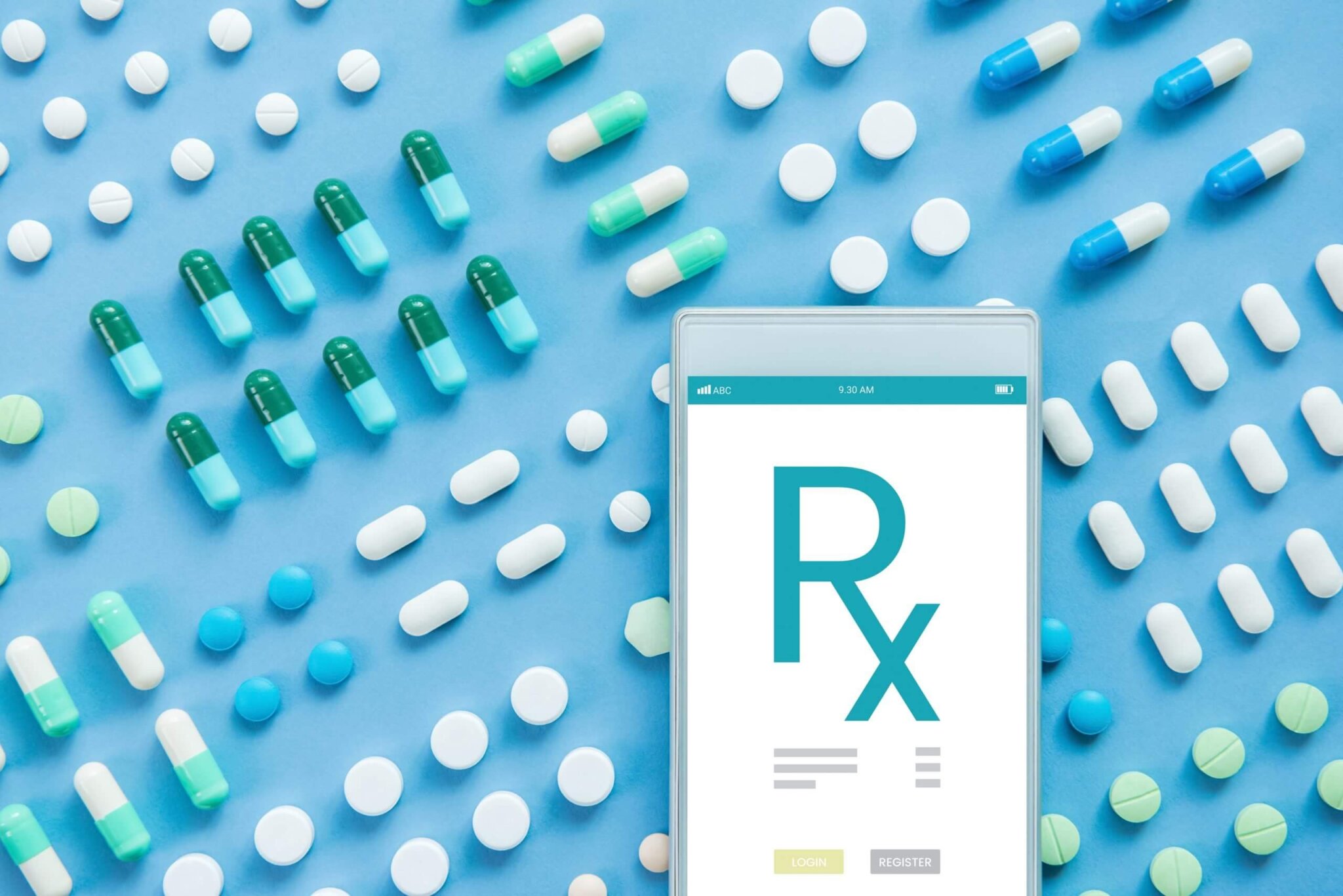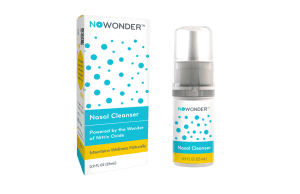 For many years, people have been aware of perinatal mood disorders (PMADs), which refer to mood changes that mothers experience during and after childbirth. The challenges of the COVID-19 pandemic have brought more attention to this issue. New guidelines now provide advice on understanding and treating PMADs more effectively and even preventing them from occurring in the first place.
For many years, people have been aware of perinatal mood disorders (PMADs), which refer to mood changes that mothers experience during and after childbirth. The challenges of the COVID-19 pandemic have brought more attention to this issue. New guidelines now provide advice on understanding and treating PMADs more effectively and even preventing them from occurring in the first place.
According to the World Health Organization, before the onset of the COVID-19 pandemic, the estimated incidence rates of women experiencing significant symptoms of depression and/or anxiety during the postpartum period (within a year of delivery) were between 10% and 15%. The first year of the pandemic saw that rate skyrocket, almost tripling to one-third of all new births.
Understanding PMADs
The broad group of perinatal mood and anxiety disorders (PMADs) includes pregnancy and postpartum depression, postpartum anxiety, and baby blues.
They include a variety of moderate to severe mood and anxiety symptoms that usually require professional health treatment. The symptoms presented often include many of the following:
- depressed mood
- severe anxiety attacks
- panic attacks
- insomnia and/or sleep disturbances
- appetite loss
- feelings of hopelessness or worthlessness
- suicidal thoughts
- loss of pleasure or joy – especially in sex
- lack of energy and motivation
- difficulty in functioning at the mental or physical usual levels
- inability to cope with life’s everyday demands
- rumination
- obsessive and disturbing thoughts.
In far less common cases, these can even be symptoms of mania and psychosis.
Distinguishing between the different forms of PMAD
Is it baby blues, postpartum anxiety, or postpartum depression?
The baby blues are a very common reaction in the first few weeks after returning home with a newborn child. They are largely attributable to the sudden decrease in hormone levels after delivery. This can leave mothers feeling overwhelmed, sad, and weepy. Typically, these are mild reactions that last only a few weeks. However, if they persist or become debilitating, there may be something else at play. The distinguishing differences between baby blues and postpartum depression are the severity and length of time.
Postpartum anxiety is more severe than baby blues comes, and it may start when there are spikes in hormone levels during the postpartum period. It may also develop in response to real stressors, such as the baby’s health, changes in the home environment, sleeping patterns, or domestic relationships. A history of stillbirth or miscarriage also increases the risk of developing postpartum anxiety. The same goes if symptoms of generalized anxiety disorder were present before or during pregnancy. Hormonal changes after weaning from breastfeeding may also trigger anxiety.
In the severest form, mothers can experience panic attacks or symptoms of obsessive-compulsive disorder (OCD). Panic attacks are distinct episodes characterized by physical symptoms like rapid heartbeat, shortness of breath, and dizziness of intense anxiety, accompanied by intrusive and unwanted thoughts. They can be accompanied by compulsive or deliberate actions to relieve distress, which can be frightening to a new mother, particularly if these thoughts involve harming the baby.
What are the treatments for baby blues, postpartum anxiety and postpartum depression?
It’s essential to consult with a physician if the feelings of baby blues don’t clear up within a few weeks or even sooner if they are getting more severe. Doctors can prescribe general anxiety and mood medications that can be helpful. They are often recommended in conjunction with therapy, such as cognitive behavioral therapy (CBT).
The first line of treatments for anxiety disorders are the classes of drugs known as selective serotonin reuptake inhibitors (SSRIs) and serotonin-norepinephrine reuptake inhibitors (SNRIs).
Selective serotonin reuptake inhibitors (SSRIs).,
For the treatment of postpartum depression or anxiety, three drugs that are most often prescribed are Trintellix, Prozac and Lexapro. Selective serotonin reuptake inhibitors are taken to improve mood, sleep patterns, appetite, and energy levels in patients diagnosed with this disorder.
The choice is primarily made by a prescribing physician, based on interactions with other drugs the patient may be taking, potential allergies to by-products in each drug, and several other factors. In some cases, it is a matter of trial and error to determine which of the three drugs works best for a specific patient.
The FDA has designated Prozac as the preferred drug for treating PMADs when patients experience obsessive-compulsive disorder (OCD) or panic disorder, which are the more severe forms of PMAD.
SSRI drugs generally have mild side effects, like dry mouth, nausea and diarrhea, headaches, insomnia, sleepiness, or fatigue. The side effects usually diminish as usage of the drug continues.
Serotonin and norepinephrine reuptake inhibitors (SNRI)
Serotonin and norepinephrine reuptake inhibitors (SNRIs) are prescribed to treat depression, anxiety disorders, and chronic nerve pain. SNRIs may be prescribed for patients with both chronic pain and depression. The SNRI drug most often prescribed for treating PMADs is venlafaxine (Effexor XR).
The main difference between SSRIs and SNRIs is that SNRIs are not selective only for serotonin. They prevent the reuptake of both serotonin and norepinephrine. Norepinephrine is a neurotransmitter similar to serotonin, used to send messages between nerve cells.
Can natural remedies help PMAD?
Treating PMADs is a multi-step process and there is a wide range of options available. PMAD usually can’t be treated alone. Let the doctor know about any natural remedies being used as part of a holistic treatment plan, particularly if the doctor has prescribed medications.
Increase omega-3
Getting enough omega-3 fatty acids may help with postpartum depression, with several studies suggesting that not getting enough omega-3s might increase the risk of developing PPD. Omega-3 fatty acids, especially EPA and DHA, are important for keeping the brain healthy and helping with mood. While more studies are needed, it’s known that the body requires increased levels omega-3s during pregnancy and after giving birth. To boost omega-3 levels, people can try taking supplements that have omega-3, like the Her Essentials Health Pack , which is especially tailored to provide a wide range of vitamins and probiotics essential of female health. Eating more foods rich in omega-3s, such as flax seeds, chia seeds, salmon, sardines, and other oily fish can also boost the levels of this compound, which the body can’t make and has to get from food.
Increase probiotics
Probiotics are being studied for how they might impact mood through the connection between the gut and brain. Research shows that some types of probiotics could help lower feelings of depression and anxiety. Eating foods like yogurt, kefir, or sauerkraut, which are rich in probiotics, or taking a high-quality probiotic supplement may be beneficial for some individuals.
Take care of your body
Getting enough sleep is important, but it can be hard with a newborn. Not sleeping enough can make feelings of depression and anxiety worse. It’s a good idea for new parents to rest when the baby is sleeping. Try to ask a partner, family member, or friend to help with nighttime feedings, allowing you to get more sleep. Simple supplements like the Sleep Pack can help you fall asleep faster and sleep longer, without the side-effects of drowsyness or sleepiness thewhen you wake up.
Exercise can help improve mood and is a natural way to treat postpartum depression. Simple activities, like taking a walk with a stroller or joining postnatal yoga classes, can be helpful. When people exercise, their bodies release endorphins, which are chemicals that make them feel happier and less stressed.
Eating a healthy diet is important for maintaining mental health. A well-balanced diet should include whole foods such as fruits, vegetables, lean proteins, and healthy fats. Foods rich in omega-3 fatty acids, such as fish, flaxseeds, and walnuts, can help improve mood and may be particularly beneficial for individuals experiencing postpartum depression.
Take some time for self-care
Having a baby often makes it hard for parents to remember and also not to feel guilty for setting aside some time for self-care. It helps to get into the habit of getting ready, stepping out of the house, and spending some time alone, whether it’s running errands or meeting up with a friend. The mess on the floor can wait; it isn’t going anywhere.
Talk about what’s going on
Talking to a partner, close friend, or family member can be helpful when things feel overwhelming. If that’s difficult, joining a support group for postpartum depression might be a good option. Building a support system and asking for help is important for new moms. Feeling alone can make depression or anxiety worse. It may also be helpful for loved ones to learn how to support someone dealing with postpartum depression.
Try some mind/body techniques
Mind-body exercises help deal with postpartum depression and anxiety. These methods help lower stress, promote relaxation, and support overall better mental health. Mindfulness meditation can help lower feelings of depression and anxiety. It works by teaching people to focus on the present moment without being critical of themselves. Just 5-10 minutes a day can make a difference. New moms can find plenty of apps and guides to help them get started with meditation.
Yoga is a great way to naturally improve mood by combining movement, breathing, and meditation. Postnatal yoga classes are especially helpful because they focus on the specific needs of new moms. Practicing yoga regularly can lower stress, help with better sleep, and lift your spirits.
Deep breathing is an easy and helpful way to manage anxiety. One method is the 4-7-8 technique, where a person breathes in for 4 seconds, holds their breath for 7 seconds, and breathes out for 8 seconds. This method can calm the body and ease anxiety symptoms.
Combining natural remedies with conventional treatments
Treating PMADs with the use of natural remedies may help, but it’s important to involve healthcare professionals when dealing with postpartum depression or anxiety. Getting professional support is imperative, especially if the symptoms are serious or don’t go away. People should also know that natural remedies can sometimes affect how medications work. Certain herbs or supplements, such as St. John’s Wort, might interfere with antidepressants or other medicines. It’s important to let a doctor know about any natural remedies being used or considered.
FAQs
What are the risks of untreated PMADs?
Untreated PMADs (Perinatal Mood and Anxiety Disorders) can increase the risk of self-harm or suicide in the patient, as well as negatively affect the whole family. Parents dealing with anxiety or depression often smile, talk, or interact less with their babies during the first year. This can lead to babies experiencing more colic, trouble eating or sleeping, and developmental delays. As children grow, they may face learning, attention, or behavior issues. Teenagers with parents who struggle may even develop anxiety or depression themselves. PMADs can also strain relationships, as partners and loved ones may feel disconnected while trying to provide support. Treating PMADs is essential for the family’s well-being.
What does postnatal anxiety look like?
Postnatal anxiety often leaves individuals feeling as though they are “losing their minds” or “going crazy.” Racing thoughts contribute to heightened emotional and physical stress, which is further exacerbated by the sleep deprivation that often accompanies caring for a newborn. Those experiencing anxiety may become overly focused on maintaining control, striving to do everything “perfectly” or to prevent potential harm. This can manifest in behaviors such as repeatedly checking on the baby out of fear that something might be wrong or imagining distressing scenarios where the baby is in danger.
How long does postnatal anxiety last?
Postpartum anxiety doesn’t have a set timeline, but the good news is that it doesn’t last forever. How quickly a mom recovers depends on when she starts treating PMADs. If moderate to severe anxiety isn’t treated, it can continue for a long time.
What are the symptoms of PMAD?
Perinatal and postpartum mood disorders can include depression, anxiety, and obsessive-compulsive disorder. Key symptoms of depression are irritability, fatigue, loss of interest in activities, sleep issues, appetite changes, excessive crying, and feelings of guilt or worthlessness. Anxiety involves constant worry, restlessness, intense fear, physical symptoms like nausea or a racing heart, and difficulty sleeping. OCD features intrusive thoughts, compulsive behaviors, and heightened preoccupation with protecting the baby. Rarely, postpartum psychosis may occur, affecting 1 in 1,000, with symptoms like confusion, hallucinations, distrust, rapid mood swings, or thoughts disconnected from reality, requiring urgent medical attention.
What is the difference between postpartum anxiety and postpartum depression?
Postpartum depression and postpartum anxiety both usually arise within the first year of childbirth but differ significantly in symptoms. PPD is characterized by overwhelming sadness, frequent crying, lethargy, hopelessness, and struggles with bonding with the baby. Meanwhile, PPA is defined by persistent worry, fear, and irritability, often accompanied by physical symptoms like a rapid heartbeat or panic attacks.
When does postpartum anxiety peak?
Postpartum anxiety can vary in duration, but symptoms often peak within the first three months after giving birth due to hormonal changes and lack of sleep. However, how long it lasts largely depends on when treatment begins. Early steps for treating PMADs, such as therapy, medication, or support groups, can significantly shorten the timeline and help new parents manage their symptoms more effectively.












